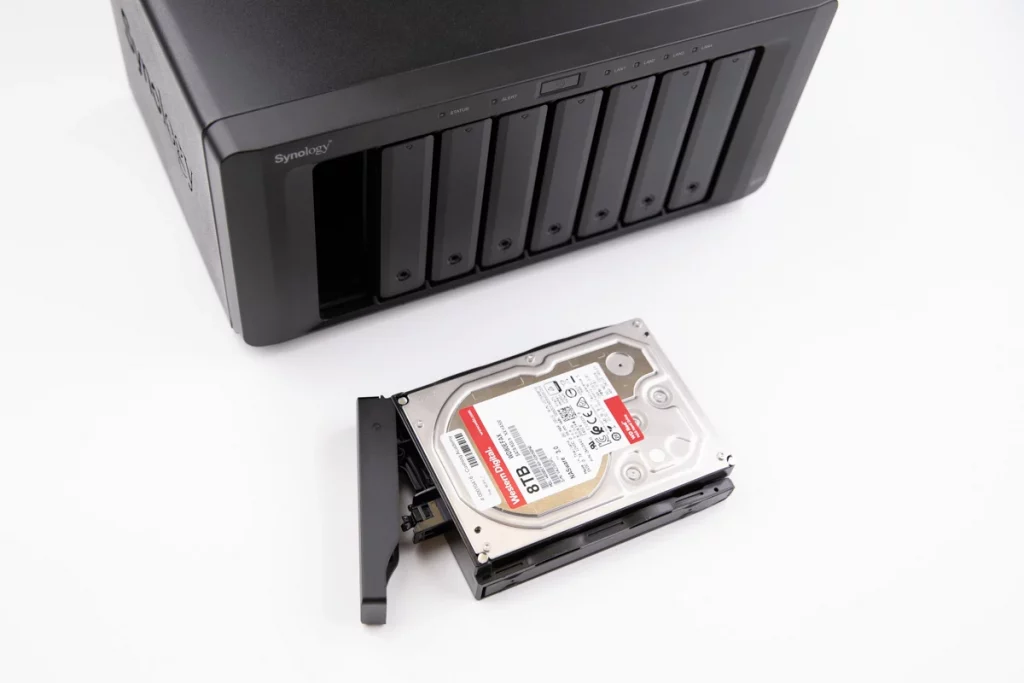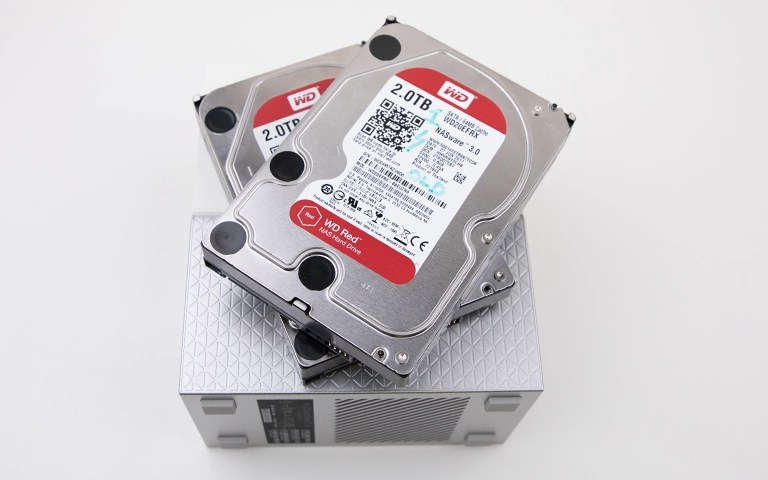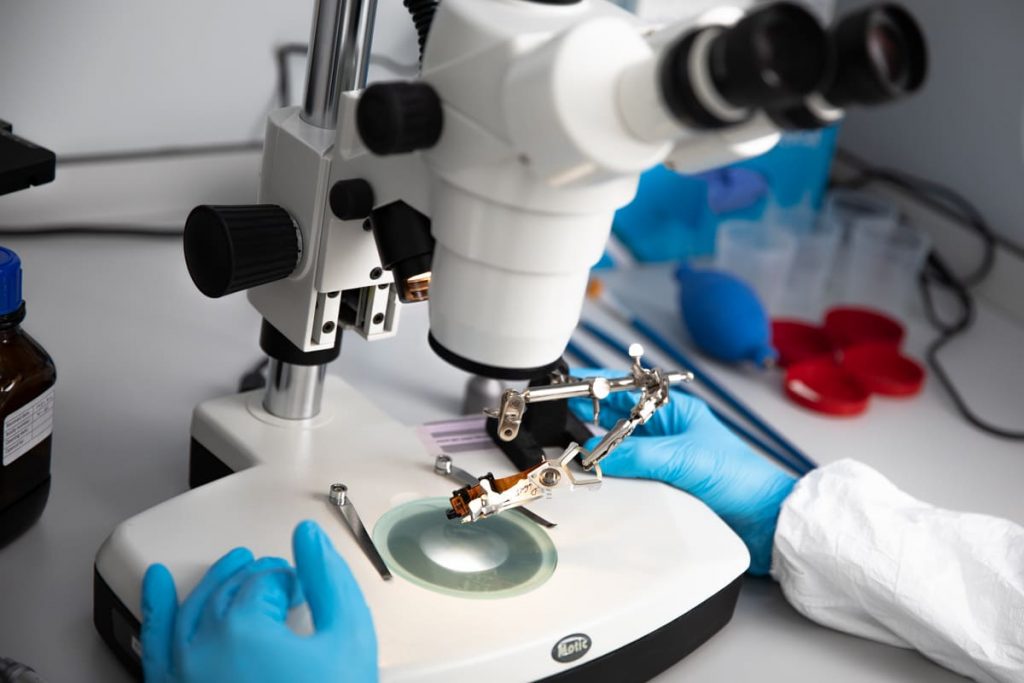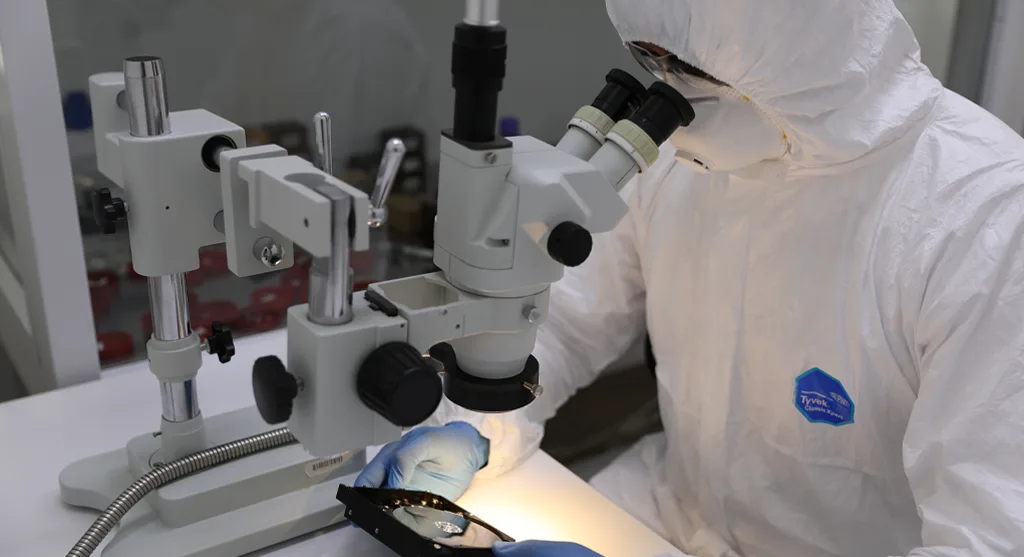A local marketing agency reached out to our team after their NAS system suddenly went offline, halting access to client databases and media assets. The failure affected the company’s internal network and stopped their cloud synchronization process, putting ongoing projects at risk.
After several unsuccessful attempts to restore functionality, the agency contacted RAID Recovery Services for NAS drive data recovery. Given the urgency, they requested an expedited evaluation to minimize downtime and resume operations as quickly as possible.
Our engineers immediately began preparing to receive and assess the device to identify the root cause of the failure and safely recover the lost data.

Case Background
The marketing agency used a network-attached storage (NAS) system with a WD Red NASware hard drive as centralized storage for their internal projects and client data. This setup allowed multiple users to access files simultaneously and sync updates with their cloud environment.
Over time, the team began noticing data streaming delays and unstable performance during heavy workloads. Eventually, the NAS drive stopped showing up entirely, cutting off access to all shared folders.
Such symptoms often indicate underlying hardware or firmware issues. As explained in our post on NAS Data Loss Causes, overheating, power fluctuations, or overload can quickly lead to drive malfunction or corruption in NAS systems.
Troubleshooting and Client Actions
Before reaching out for help, the agency’s in-house IT team tried to diagnose the issue. Their steps included:
Checking Network and Power Connections: They verified that the NAS was properly connected to the network and that the power supply was stable.
Testing the Hard Drive via SATA Connection: The technicians removed the NAS drive and connected it directly to a PC using SATA cables, hoping to access the files manually. However, the drive was not detected by the system.
Attempting Firmware and Reboot Procedures: Standard restart and firmware reinstallation attempts did not restore visibility or access.
Since NAS-specific drives differ from standard desktop hard drives, connecting them directly often fails to yield results. To understand these differences better, see our article on NAS Hard Drive vs Regular.
Realizing the issue required specialized tools and expertise, the agency decided to send their device to RAID Recovery Services for expedited evaluation.

Evaluation and Findings
Once the device arrived at our lab, our engineers began an expedited evaluation to determine the source of failure. The WD Red NASware HDD was connected to diagnostic tools, but it was not detected by the operating system, confirming a hardware-related problem.
To prevent further damage, the drive was carefully moved into our ISO Certified Class 10 Cleanroom for internal inspection. This controlled environment ensures that sensitive drive components remain free from dust or contaminants during the diagnostic process.
During the inspection, our engineer identified signs of overheating and burnt circuitry on the printed circuit board (PCB). These findings indicated that electrical overload had damaged essential drive components, rendering the device completely undetectable.
Root Cause and Recovery Process
The diagnostics confirmed that the PCB was burnt due to excessive load and heat buildup. This type of failure often occurs when a NAS device runs continuously under high demand without proper cooling.
To restore access to the data, our engineers followed a structured recovery procedure:
The damaged PCB was carefully replaced with a compatible donor board sourced from our parts inventory.
The original ROM chip, containing drive-specific calibration data, was desoldered and transferred to the donor board to maintain firmware consistency.
Once the replacement was successful, the drive was stabilized and imaged sector by sector to preserve data integrity.
Engineers rebuilt the logical structure and extracted all accessible files safely.
The process ensured full preservation of user data without risking further hardware degradation.

Results and Outcome
After completing the recovery process, our engineers successfully restored all data from the failed WD Red NASware drive. The recovered files included client databases, media libraries, and project archives essential for the agency’s daily operations.
The restored data was verified for accuracy and integrity before being securely transferred to a new, stable storage device. The entire process was completed within the expedited turnaround timeframe agreed upon during consultation.
The marketing agency was able to resume normal operations immediately after receiving their recovered files. This case underscored the importance of timely intervention and professional diagnostics when NAS devices experience electronic or thermal failures.
Trust the experts with proven results
Prevention Tips and Conclusion
This case highlights how constant workload and inadequate cooling can lead to NAS drive failure and data loss. To reduce such risks, our engineers recommend the following practices:
Monitor Drive Temperature: Keep NAS units in well-ventilated areas and track internal temperatures regularly.
Avoid Continuous Overloads: Distribute data access evenly and schedule system downtime to prevent overheating.
Perform Regular Backups: Use both local and cloud backups to safeguard critical data.
Schedul Preventive Maintenance: Check power supplies, cables, and fan systems periodically.
Follow Data Protection Practices: Learn more from our guide on Data Loss Prevention.
At RAID Recovery Services, we specialize in professional NAS drive data recovery for both physical and electronic failures. Our secure facilities and experienced engineers ensure reliable results even in the most severe cases.
If your NAS system stops responding or becomes inaccessible, contact us for a professional evaluation and immediate recovery support.

Frequently Asked Questions
What caused the NAS drive to fail in this case?
The WD Red NASware drive failed due to overheating and continuous heavy load, which led to PCB damage. The burnt circuit board made the drive undetectable by both the NAS and external systems.
Can data be recovered from a NAS drive with a burnt PCB?
Yes. Data can be recovered if the damage is limited to the PCB. By replacing the board with a compatible donor and transferring the ROM chip, engineers can restore functionality and extract data safely.
How long does NAS drive data recovery take?
Recovery time depends on the extent of the damage. In this case, expedited recovery was completed within a day, but complex cases involving multiple drives or RAID setups may take several days.
Why shouldn’t I connect a failed NAS drive directly to my computer?
NAS drives often use different file systems and firmware structures compared to regular desktop drives. Directly connecting them via SATA can cause further corruption or data loss.
How can I prevent NAS drive failure in the future?
Maintain proper ventilation, avoid running NAS systems under continuous heavy loads, and back up critical data regularly.